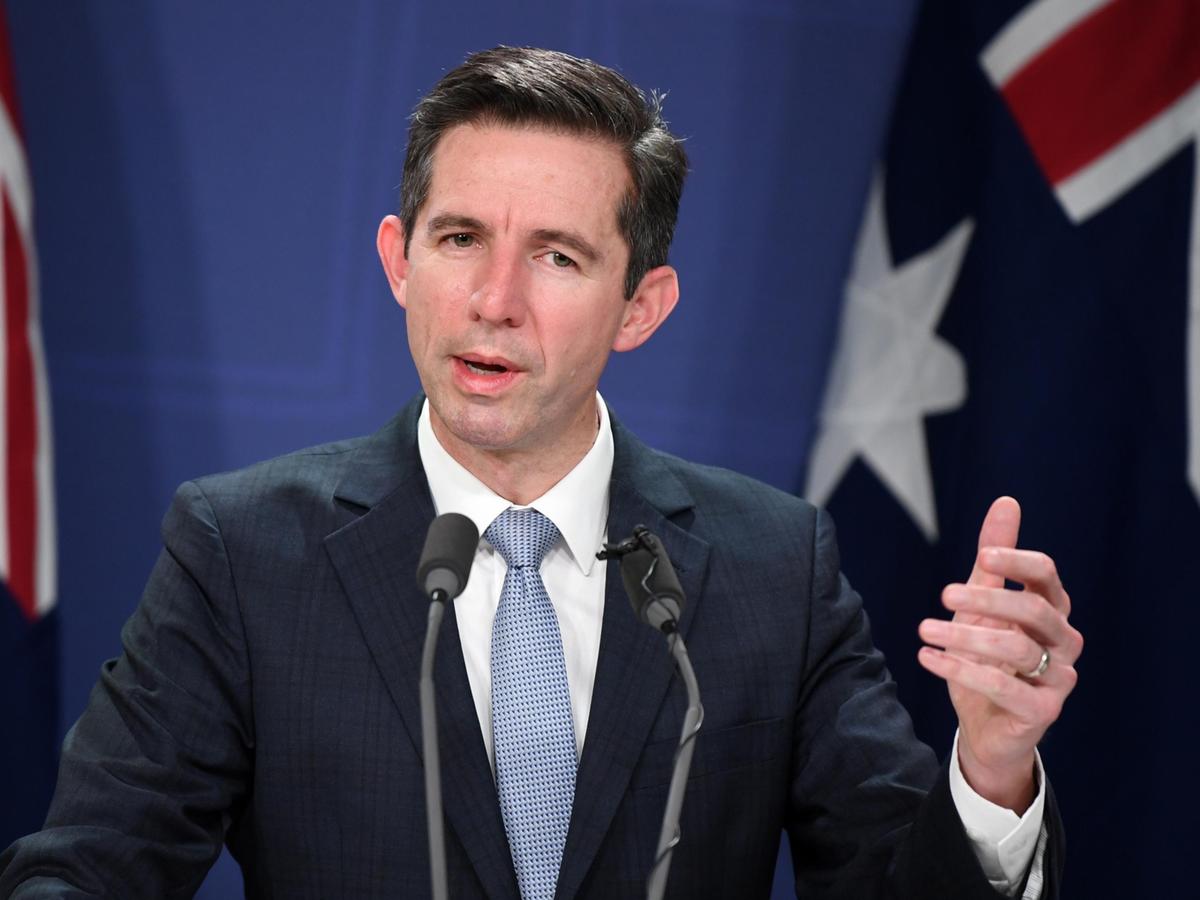Despite the challenges, our economic recovery is leading the world. This is not a time to change course. This is a time to stick to our plan. Those are the words of Australian treasurer Josh Frydenberg as he handed down the Australian Federal budget for 2022.
So what are the key takeaways who wins and who loses out? Minister for Finance of Australia Simon Birmingham joined ticker in an exclusive interview with presenter Holly Stearnes.
Where does Australia sit in economic recovery?
Birmingham says leading Australia’s economic recovery from COVID-19 by driving unemployment down the lowest levels Australia has seen in 50 years,
“We’re ensuring that we take the dividends of a stronger economy and deliver low deficits,” he says.
He points out that helping Australians with immediate cost of living pressures is a key priority whilst staying responsive to the fact that the war in Ukraine has seen a huge spike in oil prices.
“That of course, is hurting many, many Australians. And so as we did with COVID-19, temporary targeted responses to unforeseen events, we’re doing the same here cutting fuel prices by 22 cents a litre, ensuring that there’s additional payments for low and middle income earners and fixed income earners on government payments.”
Would a focus on cutting the costs of living still be on the table if there wasn’t an election?
Birmingham says It’s about maintaining consumer confidence and business confidence, “because we know that fuel prices have a direct impact”
“If we don’t maintain that confidence, then it can disrupt the economic growth for Australia,” he says.
“We showed during COVID-19 A long, long way away from elections at that time, that were unforeseen global events had a direct impact on Australian businesses, we would respond in targeted, temporary and responsible ways. In this case, oil price spikes, which aren’t expected to stay at these elevated levels forever.”
Australians will be showered with one off cash payments and cuts to petrol, as well as income taxes. This is all designed to lower the cost of living, but will that extra money eventually result in higher inflation?
Birmingham says the Australian budget predicts for inflation, and that takes in account all of the budget decisions that have been made
“We’ve been very careful in making sure the measures we apply here, don’t add those inflationary elements. We know that overseas, there are significant pressures on interest rates globally, and banks have indicated central banks have indicated that there will be a normalisation of those rates,” he told ticker.
According to Birmingham, Australia has managed to better manage inflationary pressures than anywhere else in the world with inflation running around half that of the United States or other nations.
What about wages?
“We do see a recovery in terms of growth in wages over the next few years” Birmingham says.
“We’re forecasting three and a quarter percent wages growth, ahead of inflation, so real wages growth, and that growing over the budget forward estimates to three and a half percent growth.”
Birmingham says priority is investment in productive infrastructure around the economy, initiatives to achieve higher uptake of skills, particularly in small businesses, but also with apprenticeships, Investment in digital economy strategy, and driving higher uptake of digital technologies, particularly across small businesses are tax incentives for all businesses – to bring forward investment that have been achieving higher levels of investment in the economy, business investment and non mining sector investment in Australia.
“They all add to the productivity if the country in different ways, and again can hope to achieve a sustainable improved wages outcomes into the future,” he says.
How does Ukraine impact the economy?
“The world is in a very volatile position the uncertainties of the globe from the aftershocks of COVID disruptions to global shipping and transport,” Birmingham says.
“Russia’s horrific invasion and actions on Ukraine and China assertive posture in a range of different ways have all had destabilising impacts around the globe.”
He says there has been more in defence capability in navy or Air Force. Our army will continue to do that, through investment in new technologies and missiles and artificial intelligence through the orcas pact that we struck with the US and the UK.
“But in this budget, we have particularly identified the new area of warfare – cyber warfare as being an important sphere for investment, a $9.9 billion investment over the next decade to enhance both defensive and offensive cyber capabilities, which is about ensuring that our banking sector, telecommunications sector, energy sectors, all about transport and logistics, all of the areas of government operations can be effectively protected from cyber attacks which Australia has seen in the past.”
“Thankfully, we are with a world leading capability in the Australian Signals Directorate already, but this investment will keep us ahead,” he concluded.




 News5 days ago
News5 days ago


 Ticker Views3 days ago
Ticker Views3 days ago


 Crypto4 days ago
Crypto4 days ago


 Ticker Views4 days ago
Ticker Views4 days ago


 Ticker Views3 days ago
Ticker Views3 days ago


 News3 days ago
News3 days ago


 News2 days ago
News2 days ago


 Money2 days ago
Money2 days ago





